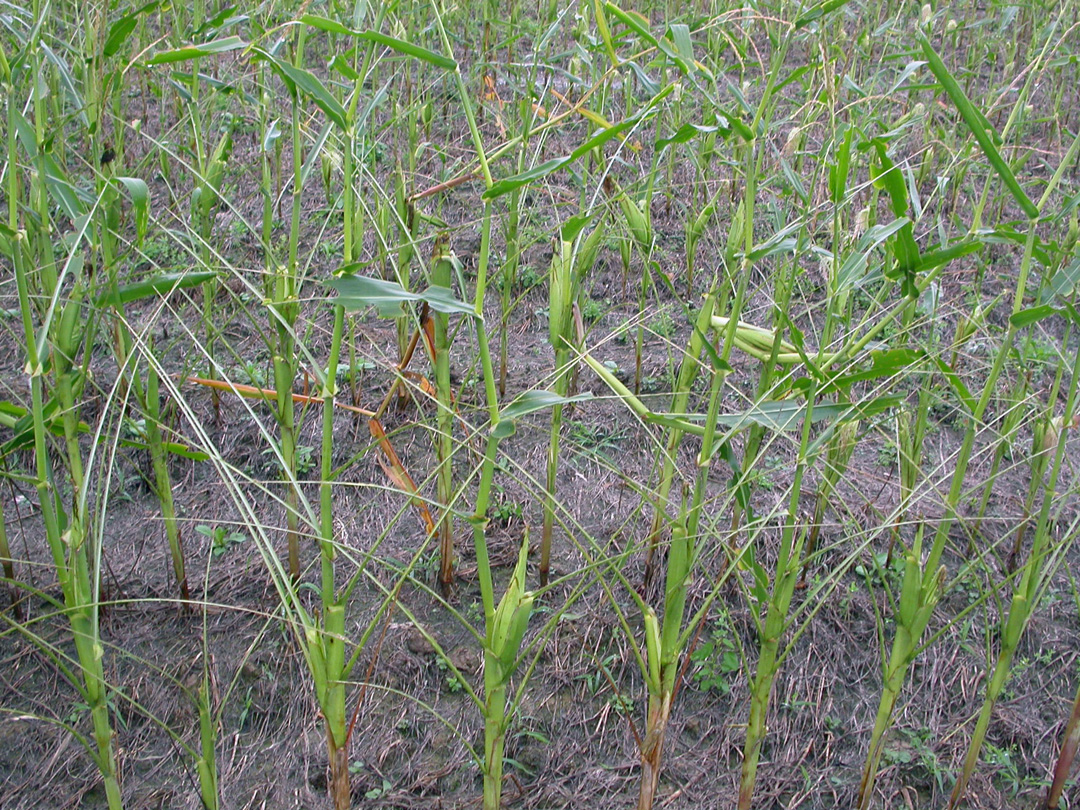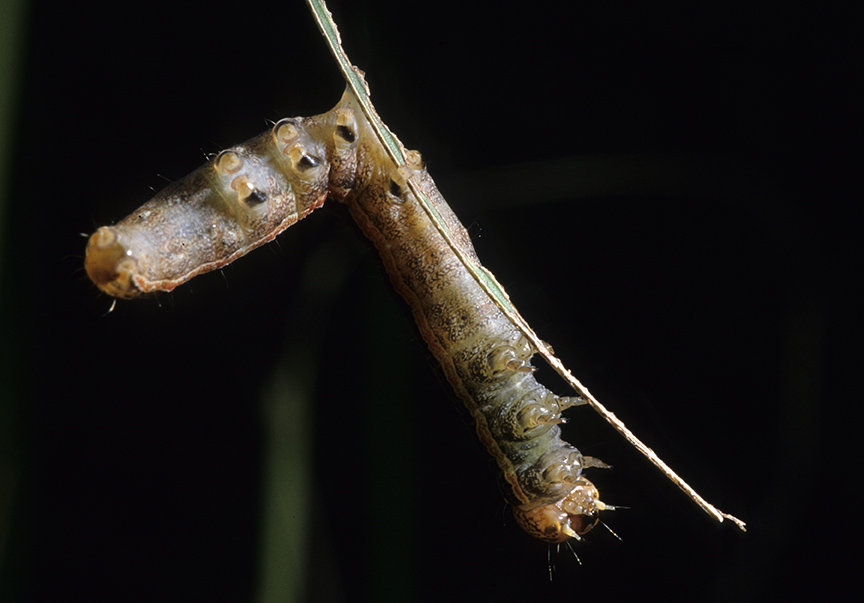Take a gander at the “Armyworm Pheromone Trap Report.” The number of moths suddenly flying this week has us wondering where females will lay their eggs? The correct answer would be lush, dense grasses. Maybe grass pastures? The current growth stage of wheat is not likely to be attractive, nor are grassy cover crops, as they should have been terminated by now. A handful of times over the years, I have been sent pictures of “back 40” cornfields, planted very late that were completely denuded in late June. A surprise to the neglectful producer! Consider this an alert that the possibility of unique, late-damage from armyworm exists this season. The good news is that should humidity stay high, armyworm larvae are very susceptible to fungal pathogens. Therefore, Mother Nature may take care of this pest for the rest of the year. Happy Scouting!

Surprise damage from armyworm (Photo Credit: Jeff Nagel).

Armyworm in early stages of death by fungus.


